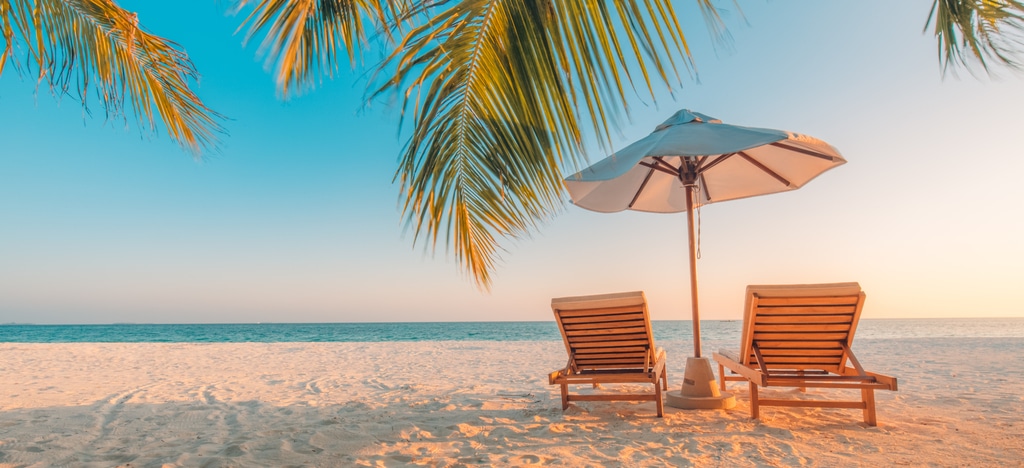Beach holidays are one of the must dos in South East Asia as there are excellent beaches and clear water in regional countries. Despite the often idyllic surroundings, the beach is not without its dangers and nuisances.
The most obvious danger is from the water itself. Water safety must be observed at all times and children cannot be left unattended. Swim only where it is indicated to be safe.
The water itself may be contaminated from pollution sometimes from untreated effluent being discharged into the sea. Case in point the beach at Boracay which has been closed for restoration. Infections with hepatitis A and E, E coli and other bacteria from sewage are possible. Do try and avoid beaches with dubious water quality.
Sunburn is painful and increases the risk of skin cancer and premature ageing of the skin. Always use sun block of at least SPF 15. SPF 15 blocks 93% of UV radiation, SPF 30 97% and SPF 50 98%.
This article will concentrate on dangers from under the water and from the beach itself.
The most common complaint we see from patients returning from beach holidays is of rashes and bites. These are often attributed to sand flies and sea lice.
Sand flies are a group of insects unrelated to the mosquito family (Order Diptera which includes house flies, fruit flies and midges). According to Singapore Biodiversity encyclopaedia, sandflies belong to family Ceratopogonidae and 34 species have been described in Singapore alone. Sandflies are blood suckers. Most of the time the bites appear as red bumps. These might take a few days to appear from the time of the bite. They are supposed to last a day or two with a mark left there disappearing over the next few days. However, in allergic individuals, the reaction may be far more severe and some patients will have the rashes for weeks. Applying soothing creams like Aloe vera, Soov or Germolene antiseptic creams will help with the itching. More severe reactions might require the use of steroid creams and antibiotics if the scratching has caused an infection.
Sand flies have been known to spread a disease known as leishmaniasis (http://www.who.int/news-room/fact-sheets/detail/leishmaniasis). Thankfully this is very rare here and I’ve never seen a case.
What most people refer to as sea lice aren’t actually lice at all. The true sea louse is a marine parasite that feeds on fish epidermal tissue, blood and mucous. This is not the cause of the common itchy rash swimmers get after a dip in the sea. This type of rash is actually caused by microscopic jellyfish larvae that can be found in blooms in warm tropical water. The rash is worse when these larvae are trapped under your swimming costume in the armpits and fire their stingers into the skin. If you develop these rashes during your swim try and flush the area with plenty of fresh water. Get out of the swimsuit if you can (give it a good wash as well). You can apply vinegar to the rashes and bad cases may need steroid creams.
Speaking of jellyfish stings, the usual first aid is also with vinegar. The wounds should be flushed with sea water and not fresh. Bad stings will need medical attention and worryingly, the deadly Box jellyfish has been encountered in Bali and close by in Bintan. There are increasing reports of Box jellyfish being found in Thailand as well. Stings from the Box jellyfish are excruciatingly painful and can cause death. Stay out of the water if your resort warns you of jellyfish sightings.
There are plenty of other sea floor dwellers that have pack potentially dangerous stings- stonefish, sting rays and cone shells for example. It is best to wear thick shoes if wading in the sea for protection.
From time to time we see a traveller returning from a beach holiday with a strange rash on the foot. leg or bottom. The rash forms an irregular red line that moves over time. This is cutaneous larva migrans, a dog hookworm. It is caught when stepping or sitting on the soil where a dog had defecated. The larvae in the soil can penetrate healthy skin and symptoms can take weeks to months to appear. As humans are not the natural host to these hookworms, the infection will resolve eventually even if not treated. We do offer medication to clear it more quickly though. Do not try to freeze (cryotherapy) or burn these rashes as it causes unnecessary damage to the skin.
I really enjoy beach holidays but it is best to be aware of the risks of your activities to make sure your dream holiday doesn’t end up as a nightmare.

Call 6733 4440 to make an appointment or click here: https://www.imc-healthcare.com/appointments/

































